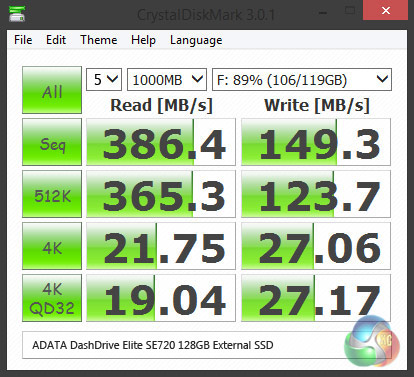
#Also extra special thanks to BAGELreflex on github for this: it made a huge difference to this improved version. #Special thanks to everyone who contributed here: #Vastly improved compatibility across distributions #The script is now optionally compatible with dash (this is the reason for there being a sed command at the end of every echo -e instance, dash liked to print the -e part when I was testing.) #Added prompts for user input to configure script instead of relying on hardcoded settings. The script is compatible with dash (if you want to use dash change #!/bin/bash into #!/bin/dash) but please note that with dash there's no support for autocomplete with the read command (so you'll have to spell out the path to wherever you want to test, letter by letter, if you use dash).
#Diskmark scores install
If you do not have or want to install df, the script should still work. A changelog is included for people who used earlier versions. I created a script that tries to replicate the behavior of crystaldiskmark 6 with fio, and I also added support for older tests (like the 512kb test) this answer is updated now a long while after I initially created it, the script has much needed improvements. name=4kQD32write -bs=4k -iodepth=32 -rw=randwriteīE CAREFUL - this example permanently destroys the data in /mnt/fs/fiotest.tmp!Ī list of fio parameters can be seen on.

name=4kQD32read -bs=4k -iodepth=32 -rw=randread \
#Diskmark scores manual
because the filesystems being compared might not be the same).Īn example based on replicating the output in the screenshot above supplemented by information from the CrystalDiskMark manual (this isn't complete but should give the general idea): fio -loops=5 -size=1000m -filename=/mnt/fs/fiotest.tmp -stonewall -ioengine=libaio -direct=1 \ As such it will always have filesystem overhead in it (not necessarily a bad thing but something to be aware of e.g. Note that despite its name CrystalDiskMark is actually a benchmark of a filesysystem on a particular disk - it can't do I/O raw to the disk alone.

I'd say fio would have no trouble producing those workloads. For my particular benchmarking see my other question.

So this is the only motivation for the question. While surfing in the web about ssd's and benchmarking I have often seen users posting their CrystelDiskMark results in forums. But that's another question ( Best way to benchmark different encryption solutions on my system).
#Diskmark scores how to
LC_ALL=C dd if=tempfile of=/dev/null bs=1M count=1024īut I am not sure about the dd parameters.įor the random 512KB, 4KB, 4KB (Queue Depth=32) reads/writes speed-tests I don't have any idea how to reproduce the measurements in linux? So how can I do this?įor testing reading speeds something like sudo hdparm -Tt /dev/sda doesn't seem to make sense for me since I want for example benchmark something like encfs I should write something about the motivation about this question: I am trying to benchmark my ssd and compare some encryption solutions. Sudo su -c "echo 3 > /proc/sys/vm/drop_caches" So how can I measure approximately the same things as crystaldiskmark does?įor the first row (Seq) I think I could do something like LC_ALL=C dd if=/dev/zero of=tempfile bs=1M count=1024 conv=fdatasync,notrunc I want to benchmark a ssd (possibly with encrypted filesystems) and compare it to benchmarks done by crystaldiskmark on windows.


 0 kommentar(er)
0 kommentar(er)
